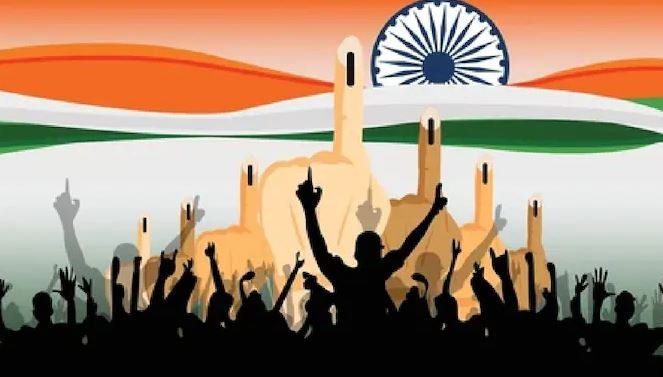Political Storm in J&K: 40% Independent Candidates Raise Eyebrows, Accusations of BJP’s Hidden Agenda
Allegations Fly as 40% of J&K Candidates Run as Independents; BJP Accused of Manipulating Votes
SRINAGAR, Sept 16: In the upcoming Jammu and Kashmir assembly elections, more than 40% of the 908 candidates are running as independents, sparking allegations from rival parties that the BJP is backing many of them to split votes. This marks the first assembly elections in the region since the 2019 revocation of Article 370 and the reorganization of Jammu and Kashmir into two Union Territories.
Following a 2022 delimitation exercise, the number of assembly seats has increased from 87 to 90, with 47 seats in the Kashmir Valley and 43 in Jammu. The high proportion of Independent candidates has led parties like the National Conference (NC), Congress, and the People’s Democratic Party (PDP) to claim that these Independents are being covertly supported by the central government.
A total of 365 candidates have filed as independents for the three-phase polls. This figure is the second-highest number of Independent candidates ever, with the 2008 elections seeing 468 Independents. The total number of candidates this time is also the second-highest on record, though still lower than the 1,353 candidates in 2008. In the 2014 elections, 831 candidates contested, with 274 running as Independents.
In the Jammu division, 367 candidates are vying for 43 seats, whereas 541 are competing for 47 seats in the Kashmir Valley. On average, each of the 47 assembly segments in Kashmir has around five independent candidates, compared to about three per constituency in Jammu.
The Sopore assembly segment, historically known for its militancy and boycott campaigns, has the highest number of candidates, with 22 contenders including 14 Independents. Notably, Ajaz Guru, brother of Parliament attack convict Afzal Guru, is among the Independents. The Sonawari segment in Bandipora district also features 20 candidates, including 11 Independents, with a significant presence of the banned Jamaat-e-Islami.
Conversely, four constituencies—Budhal, Kangan, Ramangar, and Srigufwara-Bijbehara—have no independent candidates. In Srigufwara-Bijbehara, PDP chief Mehbooba Mufti’s daughter, Iltija Mufti, is among the three candidates contesting.
Mehbooba Mufti has alleged that the large number of Independents is a deliberate strategy by Delhi to divide votes. “We must unite to prevent these Independents, supported by Delhi, from splitting our votes,” she asserted.
National Conference vice-president Omar Abdullah, contesting from Ganderbal and Budgam, has accused Delhi of deploying a high number of Independents to silence him. “Delhi is attempting to silence my voice more than any other politician in Kashmir,” Abdullah claimed. In Ganderbal, where 15 candidates are running, seven are Independents, including jailed separatist leader Sarjan Ahmad Wagay.
Congress president Mallikarjun Kharge has also voiced concerns about the influx of independent candidates. He suggested that the BJP’s apparent nervousness over the Congress-NC alliance might be driving their strategy to support Independents indirectly. “Where are these independents getting their funding from? Who is behind them?” Kharge questioned.
The three-phase assembly elections are scheduled for September 18, September 25, and October 1, with results to be announced on October 8.




